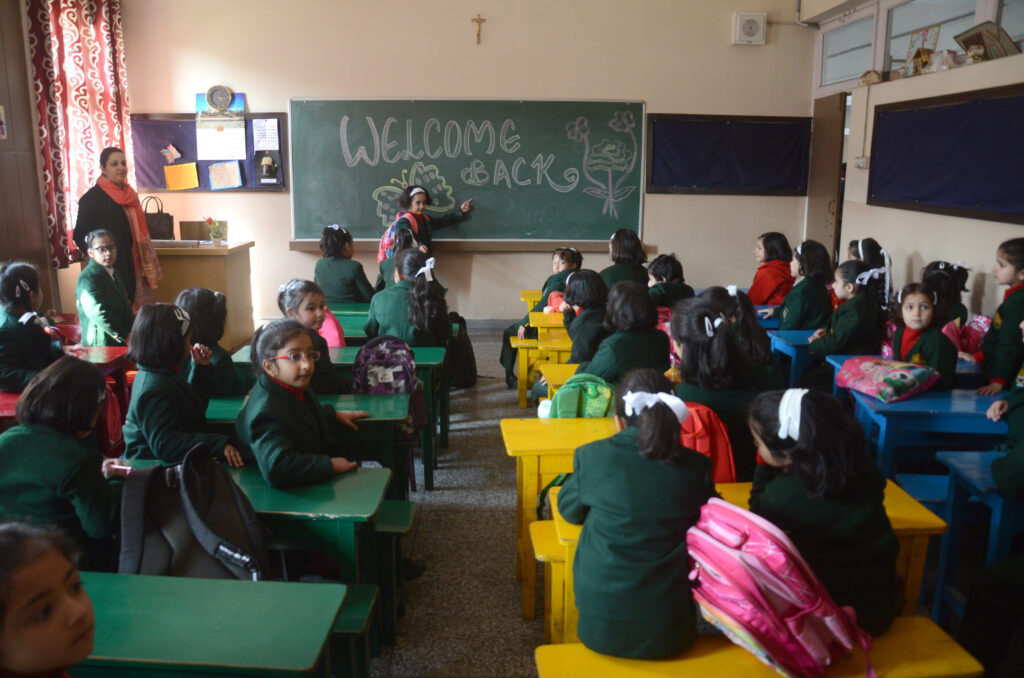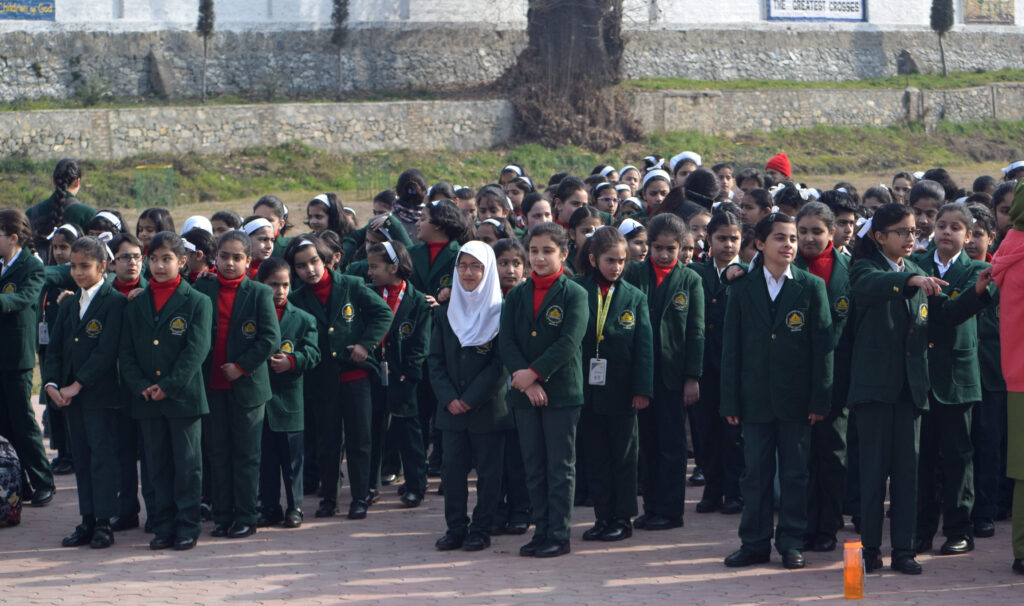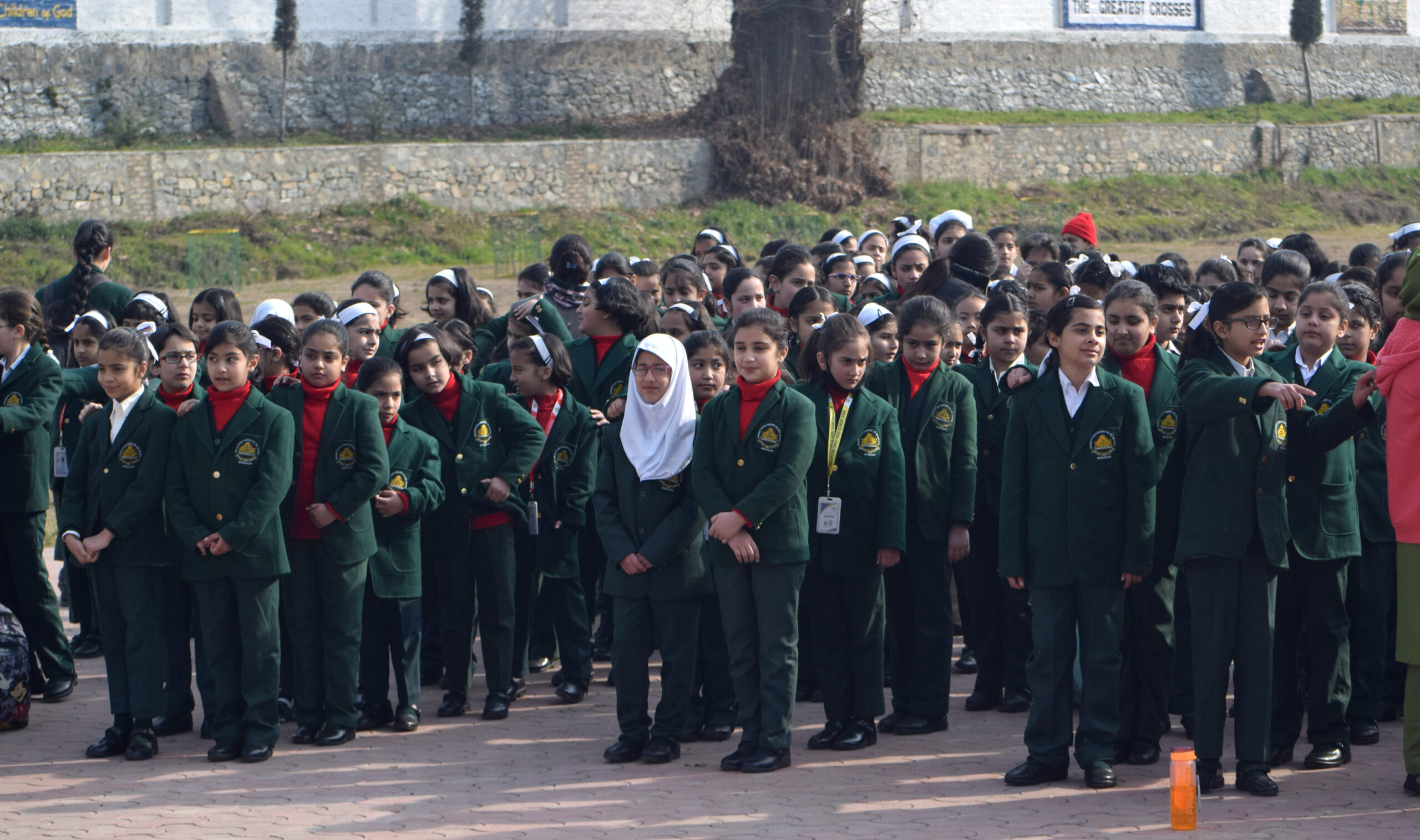A comprehensive roadmap is required to nurse the wounds suffered by the education sector in Kashmir over the last three decades.
By Suhaib Idrees Lateef.
Education is an important process of giving and receiving systematic knowledge of things that one needs to know in order to survive in this universe. Education is an important visionary tool that ushers a person into an enlightening process for growth, success, and prosperity.
Education is an important reform in taking up the challenges that life throws at us. Education is not only a method of studying books but also an opportunity to open different gateways. It is an opportunity to discuss and discover new things we do not know about.
Education is not simply imparting knowledge. In a particular faculty or subject or making one fit for securing a job or fare well in the exams, there is also training, a perspective of logical thinking which helps the coming generations adjust to the ever-changing environment. It also helps open the doors of the cerebral, cleanse the soul and realise the self. Dr. Sir Mohammad Iqbal’s poetry regarding pursuing education is a highlight and way out for us. The quality of education greatly influences the quality of manpower for societal benefits.
دیار عشق میں اپنا مقام پیدا کر
نیا زمانہ نِے صبح و شام پیدا کر
In the Region of Love, build your Entity
Create New Cosmos, New Dawns, and Evenings

An educated person should differentiate between good and evil, between right doings and wrong doings. An educated person should know what life means, how to value it, society, parents, and humanity. A well-educated person is always well-mannered and can be good at governance. The foremost aim of the ancient education system was to develop the overall personality and character of an individual, the Society, and the Social Superorder. The moral strengths were induced that helped the society to be together.
خدا اگر دل فطرت شناس دے تچھ کو
سکوت لالہ و گل سے کلام پیدا کر
May Allah grant you a Heart that could recognize the Nature
Generate melodies from the silence of Rose n Tulip
Now, if we talk of education in Kashmir Valley, it seems to be a disaster in the making. According to the New Survey Of the National Static Office (NSO), only 8.4 percent and 2.8 percent of males & females, respectively, graduate every year in Kashmir.
“Why do government schools and now government colleges, too, have a poor attendance record of staff and students? Why is the teacher of a government school a private school parent?”
There is an old saying that you can recreate lost wealth but can’t get back lost time. That is exactly what the Kashmir children are experiencing. Education not only gives us knowledge of the world but also provides something better that develops a perspective of life. But Kashmir’s education system is on a road of apathy and disruption.
Why do government schools and now government colleges, too, have a poor attendance record of staff and students? Why is the teacher of a government school a private school parent? Why are government schools largely seen through the prism of destitution and ‘meant for the poor’? Why do government school students fare poorly in exams? Why do our schools lack technical and skill education? How long are we going to produce bookworms?
With an overall literacy rate of 67.16 percent as per Census 2011, Jammu and Kashmir is very far from where it could produce a great education system. The violence over the past three decades disproportionately affected education in Kashmir due to a variety of national and domestic threats, and children, in particular, were significantly affected. Improving the state of education is crucial because the ground presentation shows a grim situation.
The complete lack of technical education and skill expertise in our schools and educational institutions is reflected in the fact that some institutions run without the internet and without a smart learning system. These systems and processes are the immediate need for the field of education. Today, we are living in a society where technology is virtually unavoidable in any circumstance.
We live in an age where consumption is more. For this, we need human resources. But the academic human resource is nowhere. We need technical cum academically-experienced hands, and we have to include skill development in our education system.
Sadly, the relationship between teachers and students has now crossed the contours of decency which, in the longer run, will impact our society badly. The image of a teacher and the dignity associated with their countenance have suffered hits. If we keep encouraging this disease, the day is not far when a teacher would sit on the ground, and the children will be taught sitting on a chair.
The result is that our secondary school students, as well as graduates, have no idea about the basics. This is because of rote learning that have now become a habit. This needs to change. The problem lies with the question papers and grading system that have made our students suffer. The fixed style of question paper sends our students to prehistoric ages.
Also, it is necessary to give the same weightage to our every subject or stream, whether arts, humanities, medicine, or engineering, as every subject has its own taste and importance. Nowadays, B Tech is a new trend, even if a student may not be willing to opt for it. We should change our mindsets.
How long will our students chase degrees in engineering and medicine and look down upon arts and other equally precious streams? This also needs a shift and a special courage to normalise the new thinking in schools and society.
Despite the huge investment in the Sarva Shiksha Abhiyan and other literacy programs, as much of the state’s population remains illiterate. This means that at least a quarter of our children are still not capable of reading and writing. This problem can be solved by devising real incentives for parents to send their children to schools.
One more disturbing curse for our young ones is their heavy school bags which amount to cruelty and also cause severe health problems. Day by day, the weight of school bags is increasing. Our children have turned into slaves of an educational system where the commissions of booksellers and teachers determine the weight of their bags. A circular has been recently issued to reduce the weight of school bags, and the government must ensure that it is implemented in letter and spirit.
Then there is the problem of coaching centres. It becomes important for a student to attend coaching classes, even at the rate of her or his school. Tuition has turned a fashion for Kashmiri students. By this practice, a student loses precious time. The tuition concept has made students’ minds such that they feel unable to clear their examinations without coaching classes.
There are the majority of poor parents in Kashmir who can’t afford the tuition as well as school fees for their wards. Where should they go? What about their future? The only option for them is to send their children to government schools, where they lose their talent in the hands of a disrupted system.
By this, our new generation is turning weak and incapacitated when we have a history and inheritance of Abdul Ahad Azad, Agha Shahid Ali, Ghulam Nabi Firaq, Rasul Mir ( John Keats of Kashmir), educationists, and scholars like Braj Kachru, Chakra and Ismat Beg.
ﻣﯿﮟ ﺷﺎﺥِ ﺗﺎﮎ ﮨﻮﮞ, ﻣﯿﺮﯼ ﻏﺰﻝ ﮨﮯ ﻣﯿﺮﺍ ﺛﻤﺮ
ﻣﺮﮮ ﺛﻤﺮ ﺳﮯ ﻣﺌﮯ ﻻﻟﮧ ﻓﺎﻡ ﭘﯿﺪﺍ ﮐﺮ
I am like a branch of grapes. My song is my fresh fruit
Produce fresh, delicious wine from my fruits

To overcome these problems, a strong educational base is required. The government schools can very well make a turnaround only if the cream of our society – the VIPs, government officers, businessmen, and bureaucrats admit their wards to these schools. Besides, a comprehensive roadmap is required for educating our children according to the needs of the present time.
It is high time for us and our society to look upon these important issues keenly and seriously. Young and energetic teachers must be brought in to teach primary students who can nourish them psychologically and intellectually so that their base becomes strong and compete with the best in the world.
نہیں ہے نا امید اقبال اپنی کشتِ ویراں سے
ذرا نم ہو تو, یہ مٹی بہت زرخیز ہے ساقی
The view expressed are author’s own, and he can be reached at [email protected].

[…] Education, once a rare privilege, has now become commonplace in modern times, bringing about profound changes in the mindset of people. As we reflect on the relationships of our ancestors, when only a select few in society were educated, it becomes clear that stark differences exist between the relationships of then and now. The pursuit of wealth, fame, dowry, and material possessions has eroded the virtues of sincerity, love, agreement, and trust that once defined human connections. Education: From Privilege to Commonplace […]